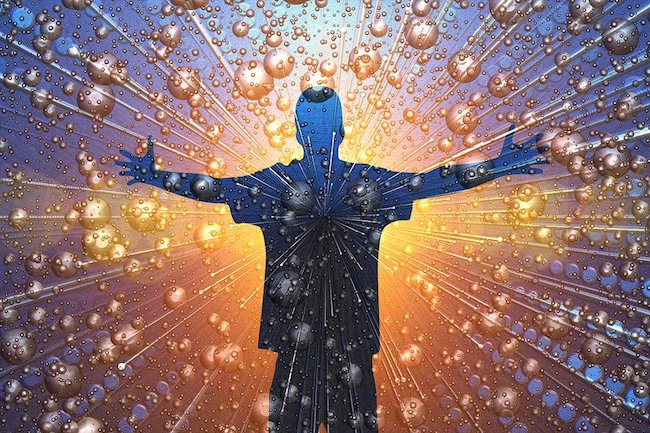7 Things That Used to Be “Crazy Conspiracy Theories” Until 2020 Happened by Daisy Luther for The Organic Prepper
Remember back in the old days of, say, 2019, when anyone who talked about microchip implants, Americans being forced to show travel papers, and re-education camps was thought to be a crazy conspiracy theorist? And then 2020 rolled around and voila! It turns out those conspiracy theories weren’t so “crazy” after all.
And I’m not just talking about the government releasing info about UFOs.
We’re living in a time when someone will attempt to beat the crap out of you, burn your house down, or even kill you if you voted for the “wrong” presidential candidate. We’re being subjected to curfews, our movement is restricted, and our businesses have been forcibly shut down. One day, people will look back on this as the year that everything changed – or depending on how Americans respond to the mandates – the year we finally said enough.
Here are seven things that were considered crazy conspiracy theories…until now, when they’re becoming far too real.
#1) Universal Basic Income
Did you ever really think we’d live in a country where the government would tell private business owners when and how they could operate? Where workers would be told, “You can no longer go to work for your own good?”
Well, welcome to 2020.
22 million jobs were lost and only 42% of those were recovered by last August, when the country began to reopen. Millions of the lost jobs were permanent losses, as businesses across the country fold under the weight of the restrictions that either don’t allow them to operate or the money problems of their former customers.
“It’s clear that the pandemic is doing some fundamental damage to the job market,” said Mark Zandi, chief economist for Moody’s Analytics. “A lot of the jobs lost aren’t coming back any time soon. The idea that the economy is going to snap back to where it was before the pandemic is clearly not going to happen.”
…More than 10 million Americans are currently categorized as temporarily out of work. But historically, nearly 30% of people who tell the Labor Department that they are temporarily unemployed never get their job back, said Heidi Shierholz, senior economist at the Economic Policy Institute, a liberal think tank.
“Even though we don’t know if the historical record will hold in this case, it’s an extremely valid concern that not all of those people are going to get called back,” she said.
People who are counting on businesses reopening their doors may be surprised to find that a temporary loss has become permanent one, said Zandi. (source)
Of the businesses that have closed, many will never reopen. Most harshly affected were small businesses.
About 60% of businesses that have closed during the coronavirus pandemic will never reopen, and restaurants have suffered the most, according to new data from Yelp. (source)
So we have not only people who became unemployed, but we also have business owners who’ve lost everything. As we go into the second round of lockdowns across the United States, it’s not a stretch of the imagination to think that some of the small businesses that have thus far managed to stay afloat will succumb to the economic effects of these mandates…taking with them even more jobs and plunging even more people into poverty.
Poverty is a vicious cycle and one seemingly small thing can suck those who are struggling into a vortex of fees and penalties from which emerging seems impossible. I’ve written about my own experiences with poverty here. The concern is that even fewer people will recover financially after this round of government mandates, leaving even more Americans broke, hungry, and homeless.
But don’t worry – the government is here to help and I mean that in the President Reagan threatening kind of way. They provided a “stimulus” check to everyone in America, gave such huge unemployment money to people that they made more staying home than they did going to work, and went so much deeper into debt that the number is simply unfathomable.
In effect, they paid people not to work. And it isn’t the fault of those people in most cases – the government forced their places of employment to close unless it was considered “essential.”
And that sounds a whole lot like Universal Basic Income. Or as I like to call it, modern feudalism.
Quite a few people are ready to give up their freedom so that someone else can take care of them.
They don’t think they’re giving up freedom. They’re convinced that they are embracing a smart, fair system that eliminates poverty. The greed, entitlement, and lack of ambition that seems inherent in many people today will have them slipping on the yoke of servitude willingly.
They feel like they deserve a living just for drawing breath. As Gawker’s headline reads, “A Universal Basic Income Is the Utopia We Deserve.”
The idea of a universal basic income for all citizens has been catching on all over the world. Is it too crazy to believe in? We spoke to the author of a new book on the ins, outs, and utopian dreams of making basic income a reality.
The basic income movement got a significant boost this week when the charity GiveDirectly announced that it will be pursuing a ten-year, $30 million pilot project giving a select group of Kenyan villagers a basic income and studying its effects. As an anti-poverty solution, universal basic income appeals to impoverished people in Africa, relatively well-off Scandinavians, and Americans automated out of their jobs alike. (source)
Sure, money for nothing sounds great on the surface.
But what would the real result of a Universal Basic Income be?
Feudalism. Serfdom. Enslavement.
UBI would fast-track us back to the feudalism of the Middle Ages. Sure, we’d be living in slick, modern micro-efficiencies instead of shacks. We’d have some kind of modern job instead of raising sheep for the lord of the manor.
But, in the end, we wouldn’t actually own anything because private property would be abolished for all but the ruling class. We’d no longer have the ability to get ahead in life. Our courses would be set for us and veering off of those courses would be harshly discouraged.
People will be completely dependent on the government and ruling class for every necessity: food, shelter, water, clothing. What better way to assert control than to make compliance necessary for survival? (source)
With this second round of lockdowns how many more jobs will go permanently down the tubes? What are all those people going to do for food? For rent? The government is going to give them money. And we can’t even argue, really, because everyone knows someone who has lost a job they had for decades and who can’t find other work.
They might call it something else, but Universal Basic Income is coming. And it’s coming soon.
#2) Travel Papers
Don’t be ridiculous. We’ll never have to show our “papers” to travel freely in the United States.
Doh.
Not until a COVID pandemic with all its subsidiary restrictions occurred. Back in March, days after I warned about the first lockdown, I wrote:
For everyone who thought the article about the Lockdown of America was a “hysterical overstatement” and that they could still do whatever they wanted because it wasn’t really being enforced, what are you thinking now that “travel papers” are being handed out? To me, this sounds like the lockdowns I wrote of yesterday were just the first incremental step toward a society that nobody hopes to see.
Yesterday, readers sent me photos of “travel papers” provided to them by employers so they could get to and from work. These are employees who work in industries like healthcare, pharmacies, and foodservice, as well as those who work in the production, transport, and sales of essential supplies.
One reader wrote, “We were told to show these if we got stopped on the way to or from work and that if the authorities gave us any trouble, to not argue and just go back home.”
Papers that people sent were from Pennsylvania, New York, Arizona, Michigan, North Carolina, Kansas, New Jersey, West Virginia, Virginia, Oregon, Florida, Louisiana, and Ohio. Industries mentioned in the papers were trucking, grocery stores, medical clinics, hospitals, nursing homes, city transit workers, railroads, food production plants, pharmacies, gas stations, stores like Target and Walmart, and automotive repair facilities.
Most people were given their papers on Friday or Saturday and told they’d need them to get to and from work starting the week ahead. (source)
You can see some of the papers that people sent me here.
#3) Mandatory GPS tracking of humans
“Don’t be silly. Nobody is actually tracking you with your phone. You’re not Jason Bourne.”
Whoops. 2020 proved that was a lie when they rolled out contact tracing apps to make sure you didn’t breathe the same air as somebody who got a positive COVID test.
Not only do sick or potentially sick people need to worry about being phoned or questioned by contact tracers, but there’s also a whole new world of dystopian technology being rapidly developed.
Apple and Google formed a partnership to develop a phone app with the potential to monitor one-third of the world’s population. The Australian government has developed an app called COVIDSafe to “protect you, your family and friends and save the lives of other Australians. The more Australians connect to the COVIDSafe app, the quicker we can find the virus.”
In fact, all sorts of potentially invasive new technology tools are springing up to “fight COVID.” Some use AI to detect signs of COVID and the Department of Defense is deploying thermal imaging to detect signs of COVID.
These things won’t just go away when the pandemic is over. If they’re in use for a year or two years – however long this virus is with us – chances are, they’re here to stay. (source)
So…if you have a smartphone, rest assured, at some point you’re probably going to have an app like this forcibly installed during one of those relentless updates. Of course, they’ll say that the app is just the framework and you have to enable it for it to work. Oh, wait, they already said that. After installing “the framework.”




